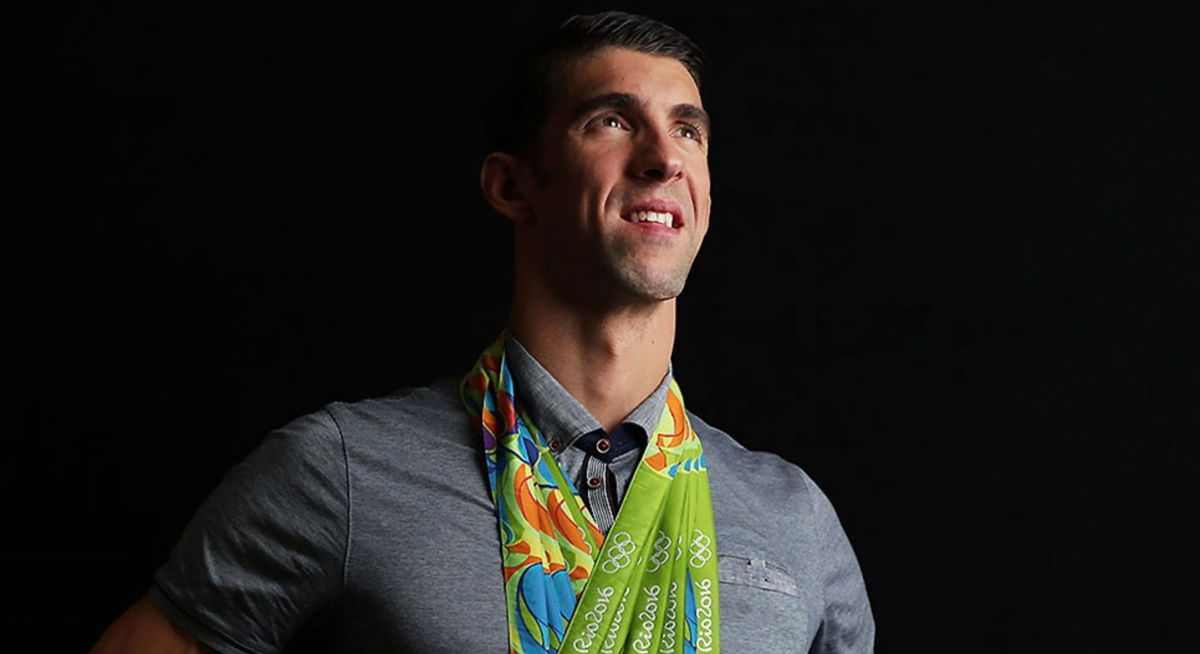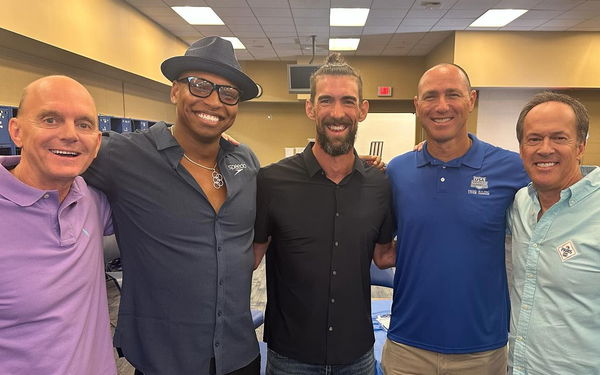

Watching Michael Phelps swim closely has been a lesson for anyone. Showcasing the mixture of dedication and pure art in the chlorinated pools does not come easy, however. It needs an iron-clad mindset all the way. Competing in five Olympic editions and snagging 23 gold medals speaks loudly in supporting those lines. But the price of such features is not less. It can take a toll on both the mental and physical sides. For the Flying Fish, those chances remained high.
Watch What’s Trending Now!
Before moving to his last Olympics in 2016, Phelps had already shared of facing such a stinging. However, he tried not to fall prey to such issues. That’s why he experimented several ways. Being a teammate in the Beijing Olympics, Cullen Jones noticed those routines that used to keep the swimmer attached to the goal without spending more of his inner soul. It is about switching off or on.
In a recent YouTube podcast with Nick Carrier, Cullen termed his former teammate as ‘relentless’ in the pool. But the Olympic relay champion informed the host that Phelps had an idea of when to switch off. “When we weren’t swimming, we were just disengaged completely,” the 40-year-old said. Furthermore, he explained the need for this process by mentioning, “Life is about balance.” In unraveling the proper meaning of these four words, Cullen used the famous quote from the movie, Fight Club: “ ‘You don’t talk about fight club’, you’re not swimming.”
ADVERTISEMENT

ADVERTISEMENT
Rather, the moment away from the swimming pools used to open multiple gates for Michael Phelps. Same applies to Ryan Lochte, Caeleb Dressel and Katie Ledecky. They immerse or immersed themselves in all types of engagements away from the sport. That avatar of those champion swimmers gives Cullen Jones a vibe of being the “normal people.” But in the pools, the swimmers are different.
According to the Olympian, the swimmers “put their PhD on, they are like fluid,” when they are or were in the pools. Such as, from time to time, Michael Phelps could be unstoppable in the pools, taking the extra load on his shoulders. But it was a kind of switch-on mode for him. Eventually, the mental break during this process helped him to continue for almost two decades in professional swimming. Cullen hailed this part of his mate from the historical relay team of the Beijing Olympics.
ADVERTISEMENT
“He [Phelps] had a lot of balance in his life and even when he didn’t have full balance, he created balance,” the freestyle specialist laid out in that regard. But in some cases, the Baltimore Bullet had to break his routine of switching off and on in his career and the result was not good.
Michael Phelps accepts the negative aspects of failing to keep a balance
The Beijing Olympics stands to be a pivotal moment in Michael Phelps’s swimming career. He snagged 8 gold medals from that edition of the Olympics. Five of those came as individual titles, whereas pairing with Cullen Jones, he claimed the 4x100m free relay event, making the world record. However, such a highly motivated performance always demands extraordinary effort and Phelps took six years to brush himself up to reach that level. And the process had never been easy.
ADVERTISEMENT

ADVERTISEMENT
In an interview, the 39-year-old disclosed, “Going six straight years without missing a single day, that is because I wanted to be the best.” He ultimately became the best. However, the cost of the crown was jeopardizing mental health. And it started to chase him when he started to win hardware at the Olympics for the first time, i.e., after the Athens Games. “I can go back to 2004 and say that was when I first experienced it. That was the first time I came across depression coming back from the 2004 Olympic Games. I suffered from post-Olympic depression pretty bad,” he conceded. Additionally, it made him contemplate suicide. Nevertheless, Phelps benefited greatly in his later years from a comprehensive pharmaceutical regimen. So that’s where the necessity of balancing the act stands. Isn’t it so?
ADVERTISEMENT
ADVERTISEMENT
ADVERTISEMENT

